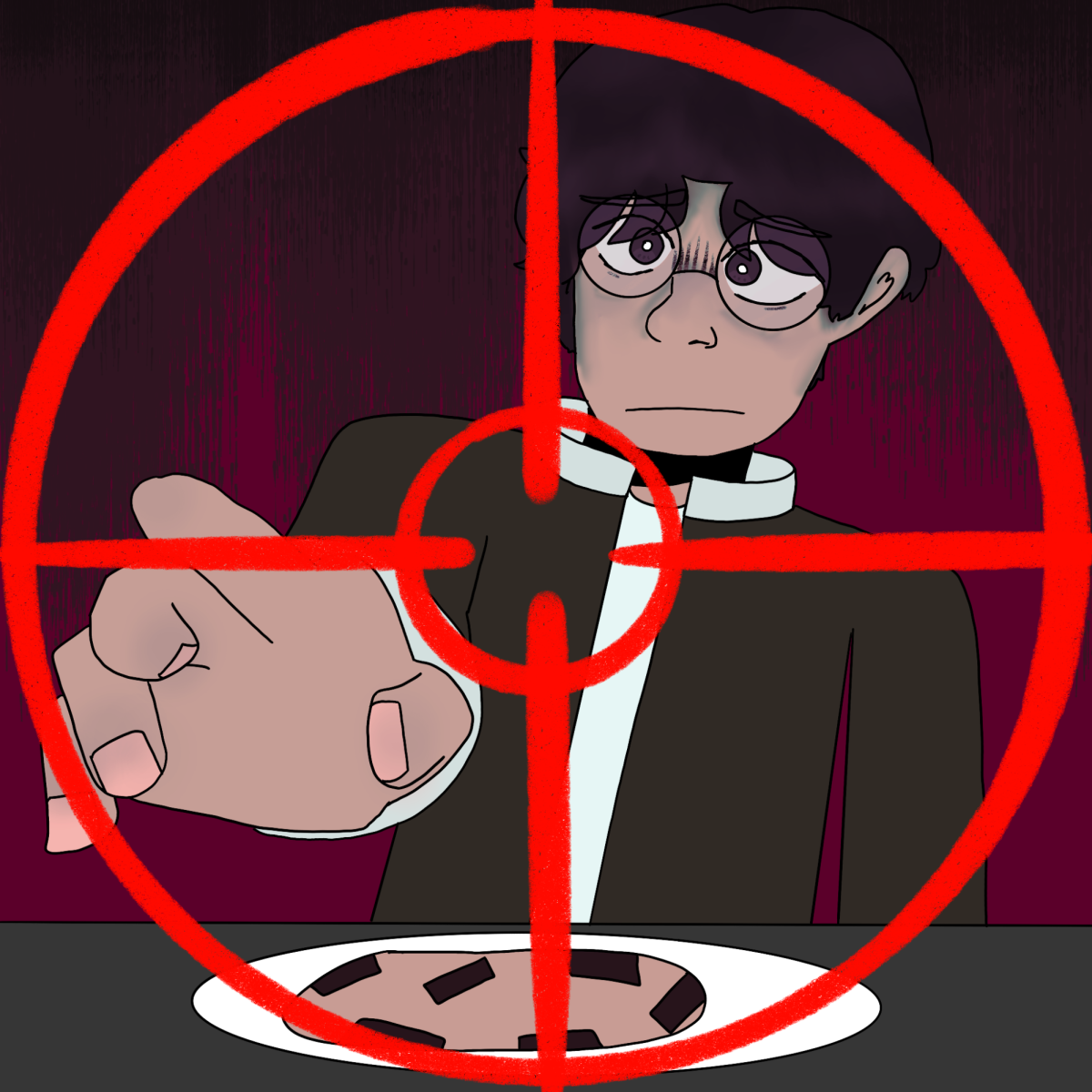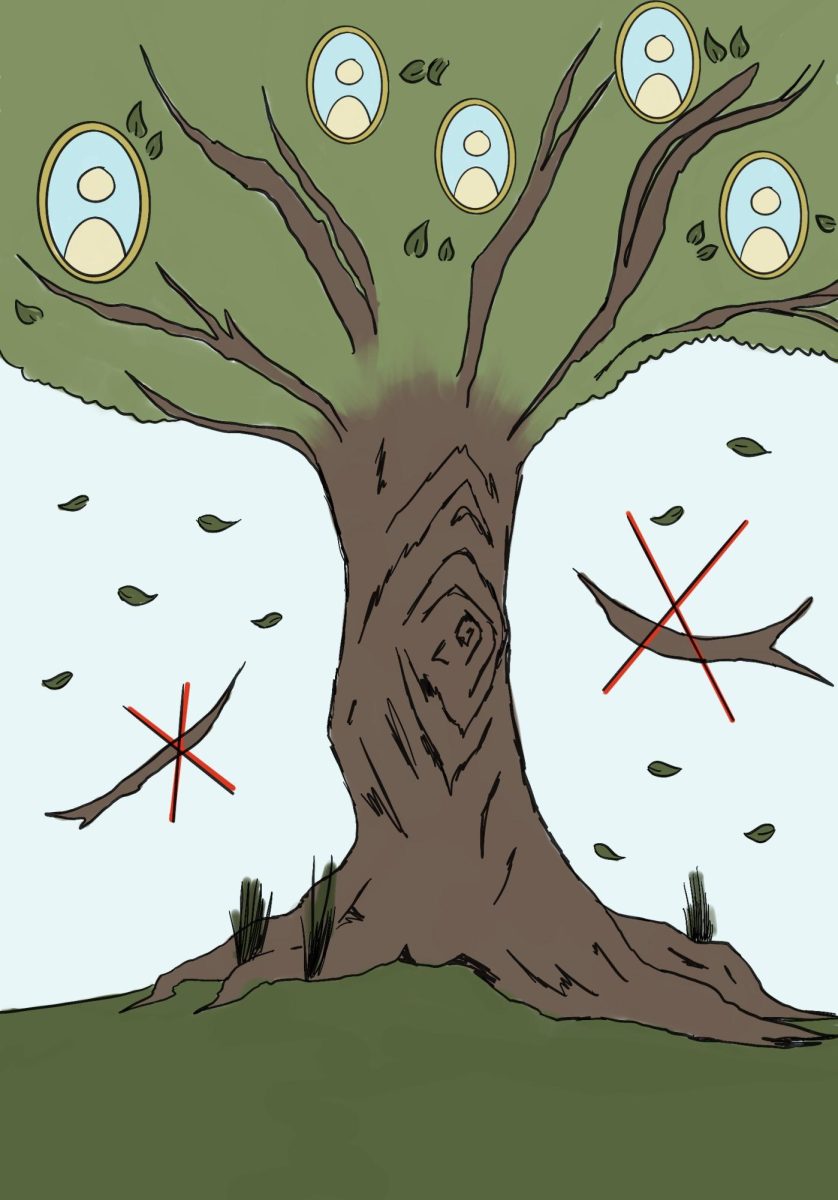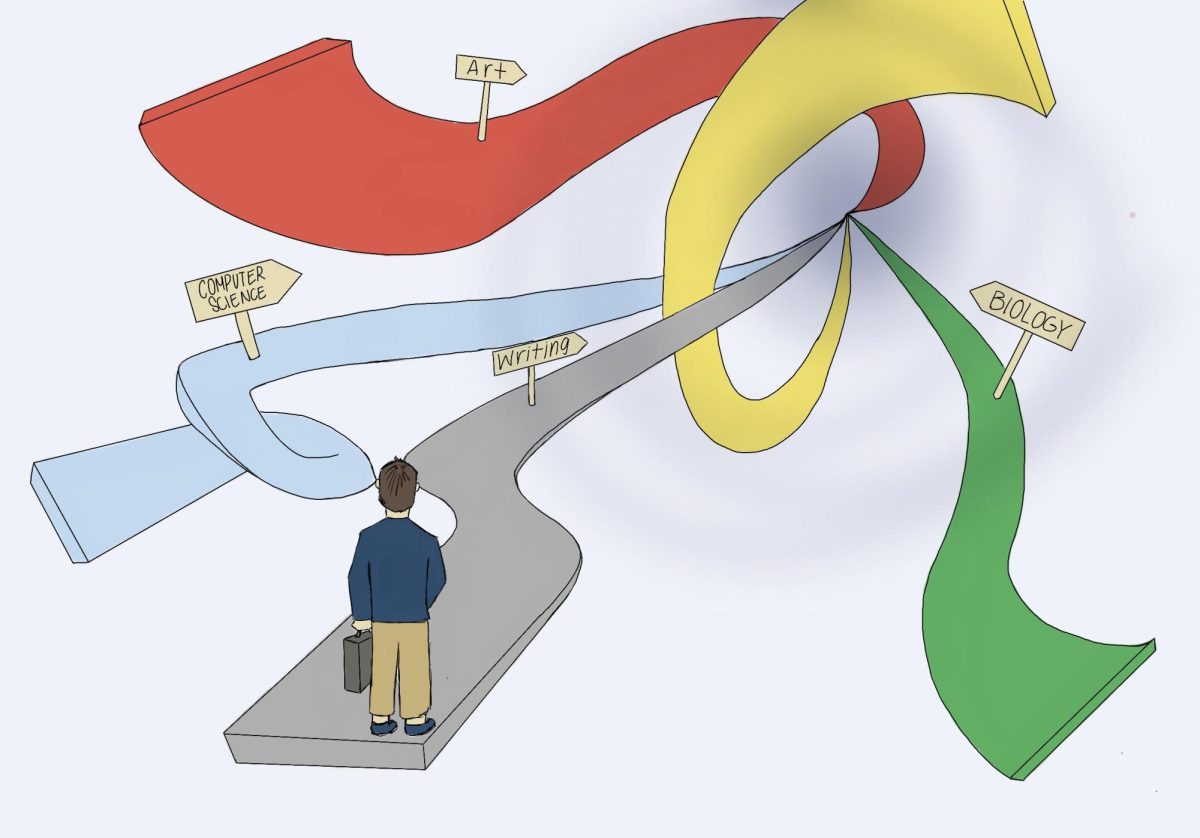Tell me if this sounds familiar to you. You walk into a Dougherty classroom during third period on a block Wednesday, the day of the class potluck. The tables are overflowing with food: popcorn, madeleines, brownies, masala Lays, those weird Trader Joe’s Takis everyone likes, pretzels, homemade cake, cubed watermelon, some poor child’s pathetic offering of a bag of baby carrots. You can tell by the looks on everyone’s faces that they’re all ravenously hungry.
And yet, no one has taken a step toward the food table. They huddle around the edges of the room, staring at the heaps of fruit salad and chips. A few whisper to each other, trying to convince their friends to come with them and get a plate, “for moral support.” Not a single person wants to be the first to eat.
Finally, some kid you don’t know nervously steps forward. Napkin in hand, he carefully selects a single pink-iced Safeway sugar cookie. The class holds its breath. He turns back to his friends, and is met with:
“Yo, are you really eating that?”
“You’re such a fatty!”
“Bro, I could never be such a big back!”
Of course, I know you have seen this happen. I know you feel the anxiety, the paranoia, that permeates our school when we are given the opportunity to eat (!) in public. And I also know that I am fed up with it.
This isn’t normal. Your classmate is allowed to eat a cookie at the end-of-year party without being insulted and judged. When did it become okay to hurl words like “fatty” or “big back” at our friends just because it was in jest?
We as teenagers are forming an incredibly unhealthy food culture, one with the potential to wreak havoc on our relationship with food in the long term.
It’s not just those on the receiving end of these insults who are impacted by them. By shaming your peers for “fat behavior,” you’re strengthening the neurological connection in your own mind: that eating a lot of food (or frequently, a totally normal amount of food) means that someone is overweight, and that ridiculing people over their body size is acceptable. This kind of speech, described by researchers in the Journal of Eating Disorders as “negative body talk,” is associated with body dissatisfaction, low self-esteem, mental health conditions and increased risk of developing eating disorders. It’s not a laughing matter.
What’s worse is that this is also occurring for everyone who overhears your conversation. Even if you and your friends are fine with belittling each other, your classmates, who may be struggling with body esteem issues themselves, will absorb your words as well. The people making fat jokes are usually those who, in the common parlance, don’t have “something to worry about” (i.e., they’re skinny and they know it). What about the rest of the school? Those who think they have “something to worry about”? “But it’s just a joke! My friends know I don’t mean it!” That doesn’t matter here. This feeds into the overall problem of bodyshaming at DVHS, because for some people, it isn’t a joke. Yelling “big back! at your friend taking a cookie normalizes whispering “big back” about classmates, as humiliation rather than as teasing.
Whenever people you care about are genuinely hurt by these words, whatever the intention and target, there’s no way to comfort them without feeding the problem. There are three options – trite and ineffective reassurances do little, but the other choices reinforce sizeist standards, either with the intent of boosting your friend (“you’re literally so thin and pretty, wish I were you”) or insulting the offender (“I don’t know why she said that, I mean, she’s one to talk, that girl eats so much”).
The really horrifying part? This kind of behavior filters down to the younger kids who look up to us. “You shouldn’t eat any more curly fries, you’ll get round as a bowling ball,” sixth-graders tell each other at T4. “I’m such a big back,” an elementary schooler confides sadly to his friends as he unwraps a snack at soccer practice. We’re teaching them how to be toxic, maladjusted paranoiacs obsessed with the width of the person they see in the mirror. That’s too much to put on them, and too much to put on ourselves.
Sure, it’s impolite to take too much of the food that other people want. People also cut in line, shove each other in the halls and block every sidewalk it’s humanly possible to block, but their peers don’t come down nearly as hard on them. Treat etiquette problems like etiquette problems, Dougherty – we all know you could stand to get some manners – but this doesn’t need to be a body issue. Insults from our parents’ and grandparents’ generations have no place among Gen Z and Gen Alpha. There’s an unfortunate tendency in Dougherty halls to throw around “gay” or “retarded” as well, used as slang for things people dislike. What kind of dinosaur behavior is this? Our speech patterns shouldn’t devolve as though history has gone backwards.
And so I implore you, Dougherty students: let’s pull ourselves together. Casual bodytalk is weird, it’s toxic and no one is having a good time anymore. Take a cookie – take two! – and embrace a culture where eating at school doesn’t lead to fear for your life.








